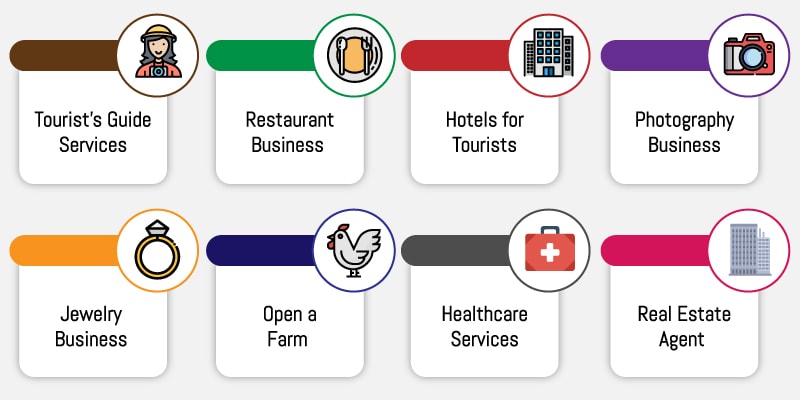
Thailand is a South Asian country popularly known for its tourist destination. Every year thousands of tourists visit Thailand to enjoy its beaches and modest lifestyle. Visit to know more information about limited company registration process in Thailand. Lots of foreigners who visit in Thailand finds that there are lots of small business opportunities in Thailand. Besides working an employee and starting a small business is not a bad idea. By setting up a small business in Thailand, you can easily earn some extra cash. Here are the lists of some small business ideas in Thailand that you can start.
If you know all the routes and information on tourist spot areas in Thailand, then you can start this business. Lots of foreigners who visit in Thailand don’t know it routes and therefore hire tour guides to avoid the unexpected situation. You can easily start this business by launching an SEO optimized website. Update all the information and your service details on the website. Tourist will find you from the internet either by email or phone.
People in Thailand are too busy with their work and does not get enough time to cook their food. As a result, most of them depend on fast food and snacks. However, the tourist in Thailand also loves to eat in restaurants and to spend some quality time. Targeting both locals & tourist starting are restaurant business near a tourist spot is a better idea. You need to serve both traditional and foreign dishes to attract both foreigners and locals
However, you could also start this business with a food truck that serves fresh food. Food truck business has the flexibility to move your business from one place to another.
Thousands of foreigners visit in Thailand every month for different purposes. Some visit Thailand for business purposes, other come as a tourist.Foreigner who came in Thailand usually live here for temporary time. As foreigner does not have any permanent place, they end up living in hotels. If you have a bit of extra capital then you can start a hotel business. if you have an extra room for flat, you can start a small hotel business.

Photography business in Thailand is not a unique business idea, but it is still a profitable one. Starting a photography business does not require huge investments. All you need is a DSLR camera and a website with contact details. This business needs a bit of social media marketing so that everyone knows about your business.
Selling jeweler and other fashion accessories is a good business in Thailand because these products have a high demand. Of course, establishing a business that builds ornaments such as ears, rings, clutches, and so on can be very expensive. But you can start importing these items and selling them or connecting with local manufacturers with a lower budget.
Agriculture is the world's oldest occupation that continues to spread everywhere in business. You can start a small agriculture firm. The poultry business is a good idea to start as a small business in Thailand. You can sell products on the local market, or you can contact restaurants or hotels to offer your product.
Due to the increased health awareness in Thailand, there is an increasing demand for professional health care services. This means that there are many opportunities for professional healthcare practitioners. Doctors, nurses, and pharmacists can easily start this business with a small investment. Small healthcare service is very profitable in Thailand.
Real estate business always rocks everywhere. But starting a real estate business in Thailand is a bit difficult for foreigners because of government rules and policies. The foreigner who wants to work in Thailand can start a real estate agent business. You can still earn a lot by taking commissions as a real estate agent. However, if you have enough idea about real estate business, you can also open a business consulting firm for foreigners who wants to start a real estate business.
For starting a business in Thailand, you must register your business with the Thai government. Most of the foreigner doesn’t know ¬about company registration procedures in Thailand. As a result, they fail to establish their dream business.
Don’t worry!! S & F Consulting Firm is always there to help you out. S & F will assist you with all legal activities and documentation procedures to register a company in Thailand. For any types of business solution, feel free to contact us.
FAQ
Getting a work visa in Thailand is not difficult if all the requirements are fellfield correctly. It takes just seven days to accomplish a work visa in Thailand.
The cost of opening a business in Thailand depends upon the type of business you want to register and total paid up capital.
The only foreigner from the United States of America can set up a 100% foreigner owned company.